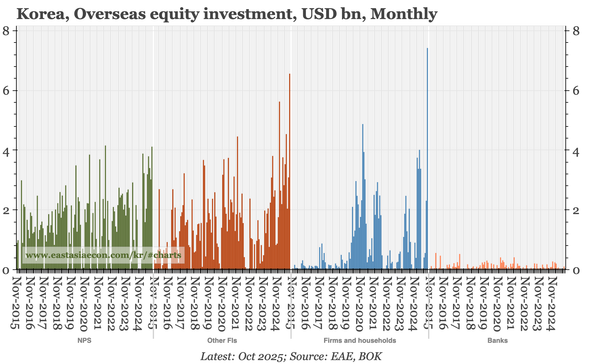Korea – consequences of higher savings
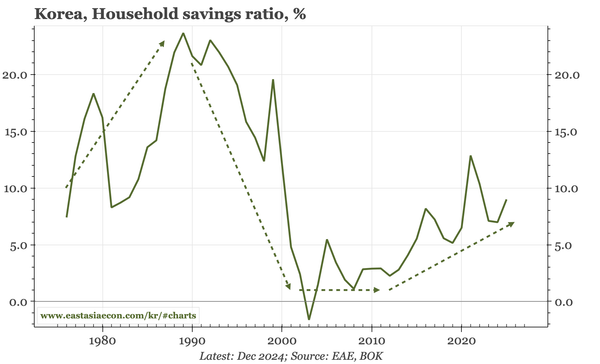
The BOK recently published some nice research highlighting the rise in the household savings ratio. That is an important phenomenon, helping explain the weakness of consumption, the rise in the current account surplus, and being intertwined with the surge in Korea's overseas equity buying.
Korea – record CA, record equity outflows
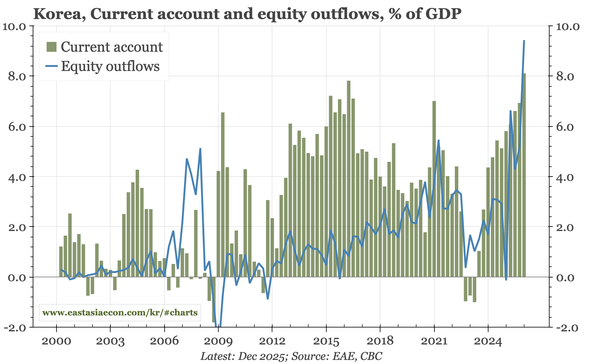
Korea's current account reached a record high in Q4. But equity outflows, remarkably, increased even more. The balance between the two should diverge through 2026. The CA surplus can be expected to grow on the back of the semi supercycle, while there are four reasons to think net outflow should peak
Korea – still all about exports
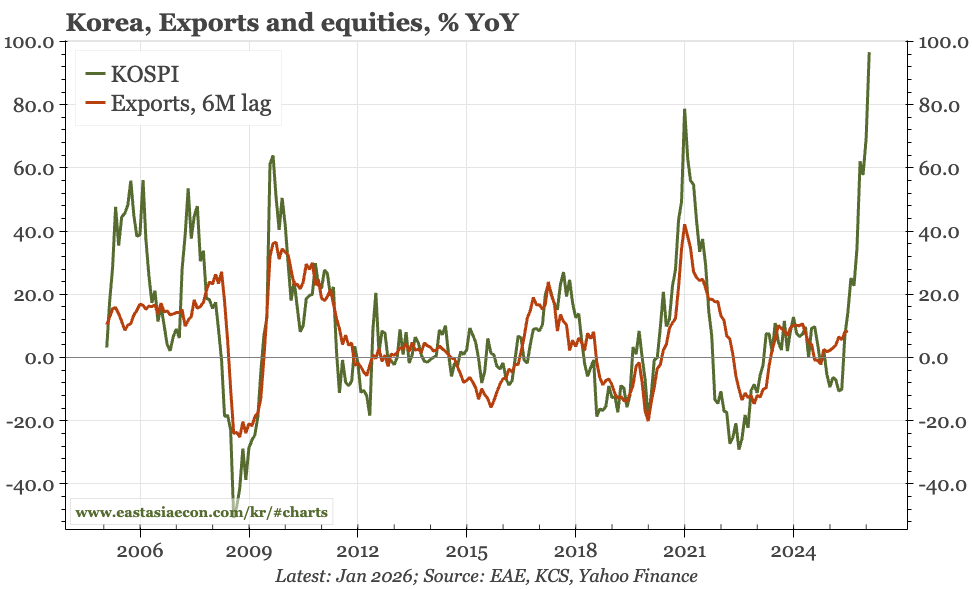
Today's data releases show the domestic economy bottoming out, but not yet growing much. The upside risk rests on 1) exports, which the BOK in its last official forecast thought would only grow 1.4% in 2026 and 2) capex, with Samsung and SK Hynix this week pledging big increases.
Korea – more K than elsewhere
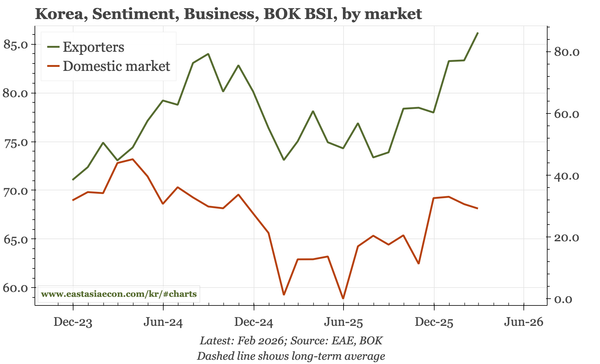
Headline business sentiment has improved to take the BOK back towards neutral. But the details are mixed, with Korea's recovery more K-shaped than it has been before. With the semi cycle lifting exports, the BOK is now unlikely to ease further, but the bank still needs to see more domestic recovery.
Korea – economy weak but housing firm
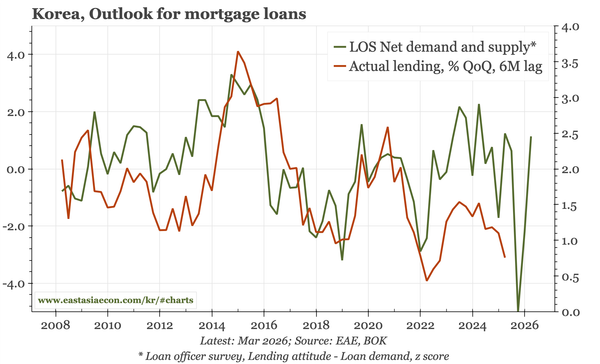
Today's Q4 GDP data show the economy contracted again late last year, and grew just 1% in 2025 as a whole. That partly reflects weak construction, but facilities capex is also weak. And yet, this week's Loan Officer Survey warns of no lasting slowdown in housing.
Korea – "upside risks have increased"
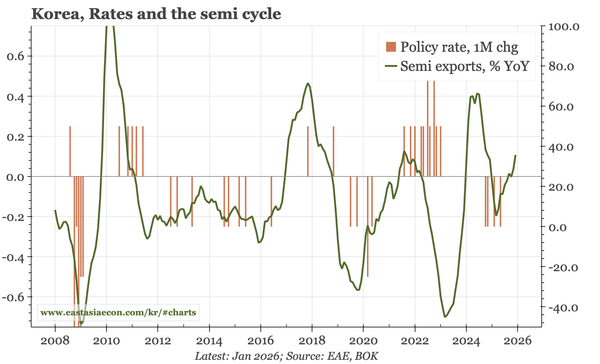
The BOK isn't getting carried away by the remarkable rise in semiconductor prices, but it did today say the chip cycle is moving growth risks to the upside. It also terminated talk of rate cuts, though that isn't just about growth, with the bank making clear that KRW weakness is a key consideration.
Korea – unchanged, except for DRAM
Domestic sluggishness and financial stability concerns aren't changing, so likely keep the BOK on hold tomorrow. But there is a new development: the 10x rise in the DRAM price. To me, that is shifting cycle risks to the upside. Tomorrow's meeting will be important if that is the bank's view too.
Korea –outflows still strong in November
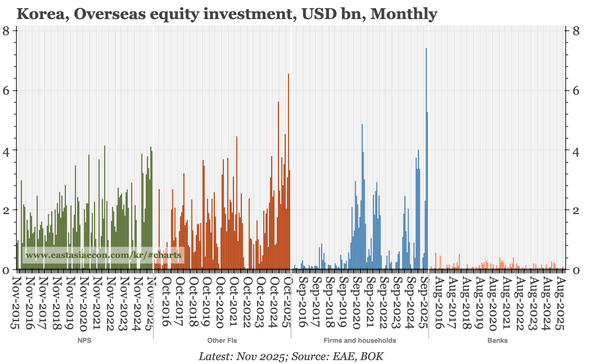
November BOP data show another big current account surplus – and more big outflows into offshore equities. We can't be sure that outflows have yet peaked. But with the KRW cheap, semi exports gaining momentum and the government taking KRW stabilisation measures, risk around the currency are shifting
Korea – PPI inflation picking up

The mild rise in PPI goods inflation reflects the continued strength of import prices. Services PPI inflation is picking up too, reversing the sharp fall of 1H25. Neither development yet suggests CPI inflation is about to accelerate, but the bounce in services PPI removes downside risk for CPI.
Korea – BOK optimistic on exports, and consumption
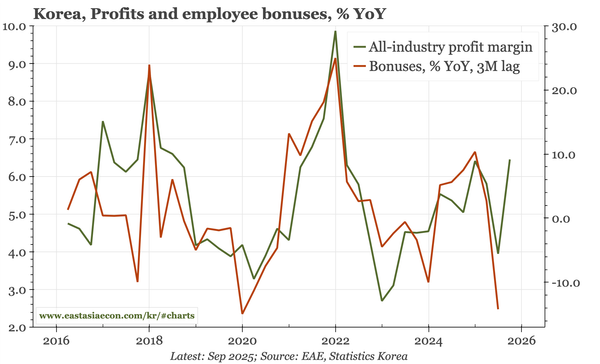
The BOK minutes shed more light on the improvement in cycle optimism that was clear at the November meeting. In terms of exports, that appears justified, because of strong semi exports and firmer profits. I am less sure about consumption, even though corporate earnings will lift bonuses.
Korea – core inflation stable, but not low
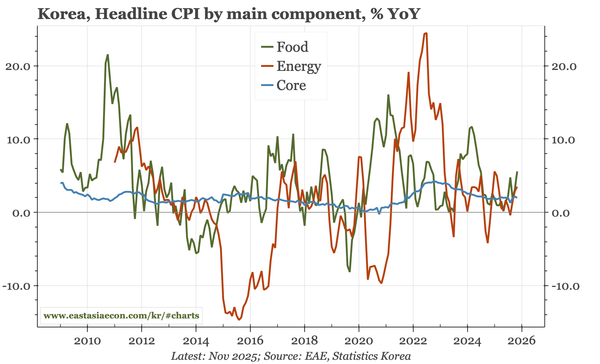
The BOK says the rise in headline CPI inflation to 2.4% the last couple of months is temporary, and that core is stable. That isn't an unreasonable assessment. However, I'd continue to highlight the strength of services inflation, which remains firm reltive to ongoing labour market weakness.
Korea – still no clear lift in growth
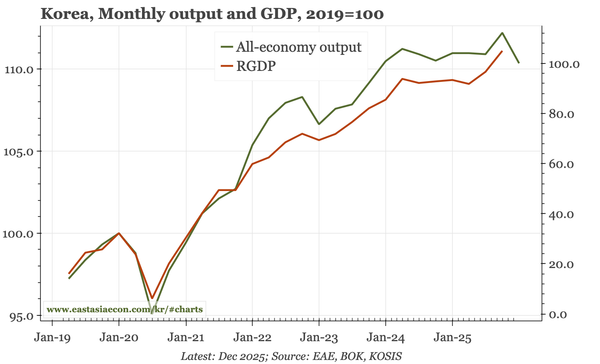
The BOK's revisions to the GDP outlook yesterday were modest. But in today's October output data, there's little sign of any improvement at all. The data are affected by the long Chuseok holiday, and will likely look better through year-end. Still, it is clear the economy still faces headwinds.
Korea – was when, now also whether
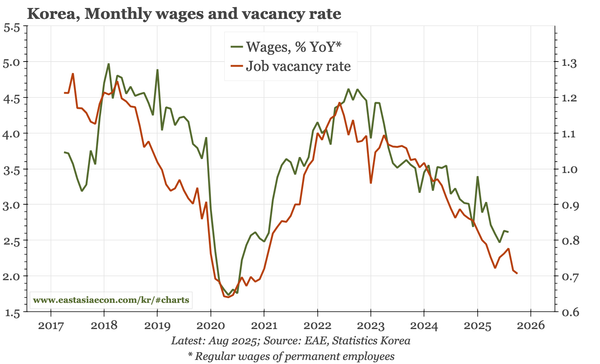
The BOK didn't raise growth forecasts above potential, but still signalled some concern about the resilience of inflation. That sounds a touch stagflationary, and was used to justify a step back from its loosening stance. Growth only gets above potential in its chip-driven upside scenario.
Korea – below potential, but are risks skewed to the upside?
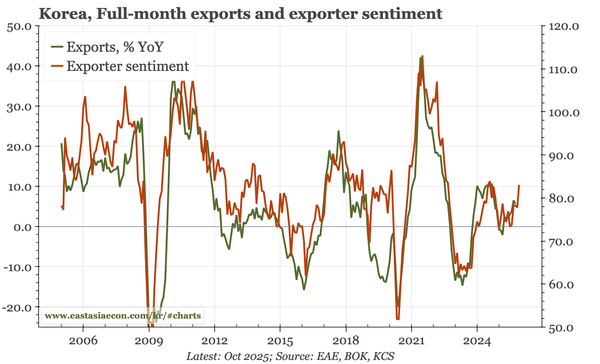
I doubt the BOK can raise '26 growth forecasts above its estimate of potential and so shift its loosening stance. What's the wriggle room around that? 1) It says the memory cycle means risks are skewed to the upside 2) Citing financial stability risks, more members suggest rates won't change.

